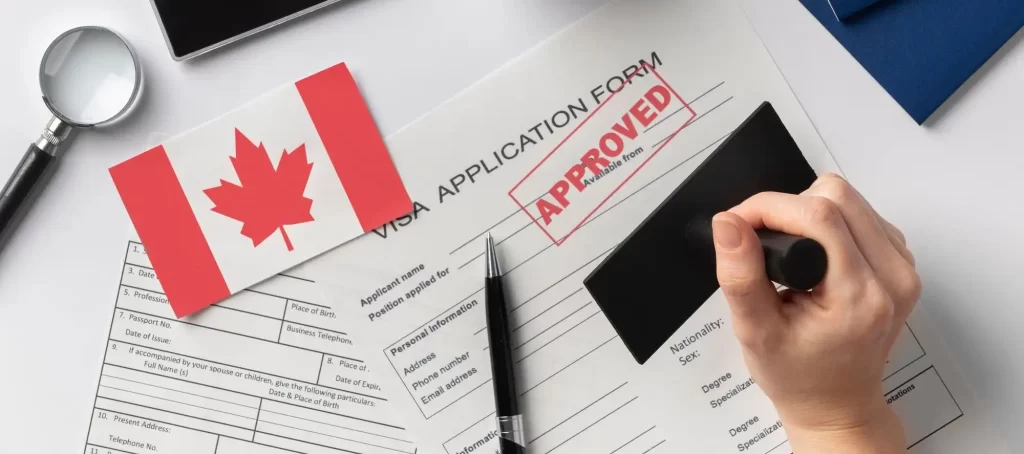In Canada, international students and workers are categorized into two main groups based on their study or work permits: SDS (Student Direct Stream) and non-SDS applicants. Each category has specific requirements and documentation that individuals must provide to ensure a smooth visa application process. In this blog, we will delve into the essential documents needed for both SDS and non-SDS applications in Canada.
SDS Applicants:
The Student Direct Stream (SDS) is an expedited visa processing program designed for international students from specific countries. To apply under SDS, you must meet certain criteria and submit the following documents:
a) Letter of Acceptance: A formal acceptance letter from a designated Canadian learning institution is required. The letter should state your program details, including start and end dates, tuition fees, and any conditions, if applicable.
b) Upfront Medical Exam: All SDS applicants must undergo a medical examination by an approved panel physician. The results of the examination should be submitted as part of the application package.
c) Proof of Tuition Payment: Provide proof of payment for the first year of study or a Guaranteed Investment Certificate (GIC) showing sufficient funds to cover living expenses.
d) Proof of Language Proficiency: You must demonstrate proficiency in English or French by providing results of an approved language test, such as IELTS or CELPIP (for English) or TEF (for French).
e) Proof of Financial Support: Submit documents showing proof of financial support, such as bank statements or education loan documents, to demonstrate that you can cover living expenses for the duration of your studies.
Non-SDS Applicants:
Non-SDS applicants include students and workers from countries that do not qualify for the SDS program. The documentation requirements for non-SDS applicants are generally more extensive. Here are the essential documents for non-SDS applications:
a) Letter of Acceptance: Similar to SDS applicants, non-SDS applicants must provide an official letter of acceptance from a recognized Canadian educational institution.
b) Financial Statements: Non-SDS applicants are required to show proof of financial capacity to cover tuition fees and living expenses. This includes bank statements, income tax returns, scholarship award letters, and other relevant financial documents.
c) Language Proficiency: Non-SDS applicants must demonstrate language proficiency in either English or French. Test results from approved language exams, such as IELTS or CELPIP (for English) or TEF (for French), should be submitted.
d) Educational Credentials: Non-SDS applicants should provide original or certified copies of their educational credentials, including transcripts, diplomas, degrees, or certificates. These documents should be assessed by recognized credential evaluation services.
e) Work Experience: If applying for a work permit, non-SDS applicants must submit proof of relevant work experience, such as employment letters, contracts, or payslips, to support their application.
Understanding the documents required for SDS and non-SDS applications in Canada is crucial for a successful visa application process. Whether you qualify for the Student Direct Stream or fall under the non-SDS category, having the necessary documentation ready will streamline your application and increase your chances of obtaining a study or work permit in Canada. Remember to check the official Canadian immigration website for the most up-to-date information and consult with an immigration professional if you have specific concerns or questions regarding your application.
Here’s a table summarizing the required documents for SDS and non-SDS applications in Canada:
| Required Documents | SDS Applicants | Non-SDS Applicants |
| Letter of Acceptance | Official acceptance letter from a designated Canadian institution | Official acceptance letter from a recognized Canadian institution |
| Upfront Medical Exam | Medical examination by an approved panel physician | Medical examination by an approved panel physician |
| Proof of Tuition Payment | Payment for the first year of study or Guaranteed Investment Certificate (GIC) | Payment for the first year of study or Guaranteed Investment Certificate (GIC) |
| Proof of Language Proficiency | Results of approved language test (e.g., IELTS, CELPIP) | Results of approved language test (e.g., IELTS, CELPIP) |
| Proof of Financial Support | Documents showing financial capacity to cover living expenses | Financial statements, bank statements, income tax returns, scholarship award letters, etc. |
| Educational Credentials | Original or certified copies of educational credentials (transcripts, diplomas, degrees, certificates) | Original or certified copies of educational credentials (transcripts, diplomas, degrees, certificates) |
| Work Experience (if applicable) | N/A | Proof of relevant work experience (employment letters, contracts, payslips, etc.) |
Author: Tabinda Khan
Education Counselor | IELTS Trainer
Edu-Wire Overseas Education Consultant









